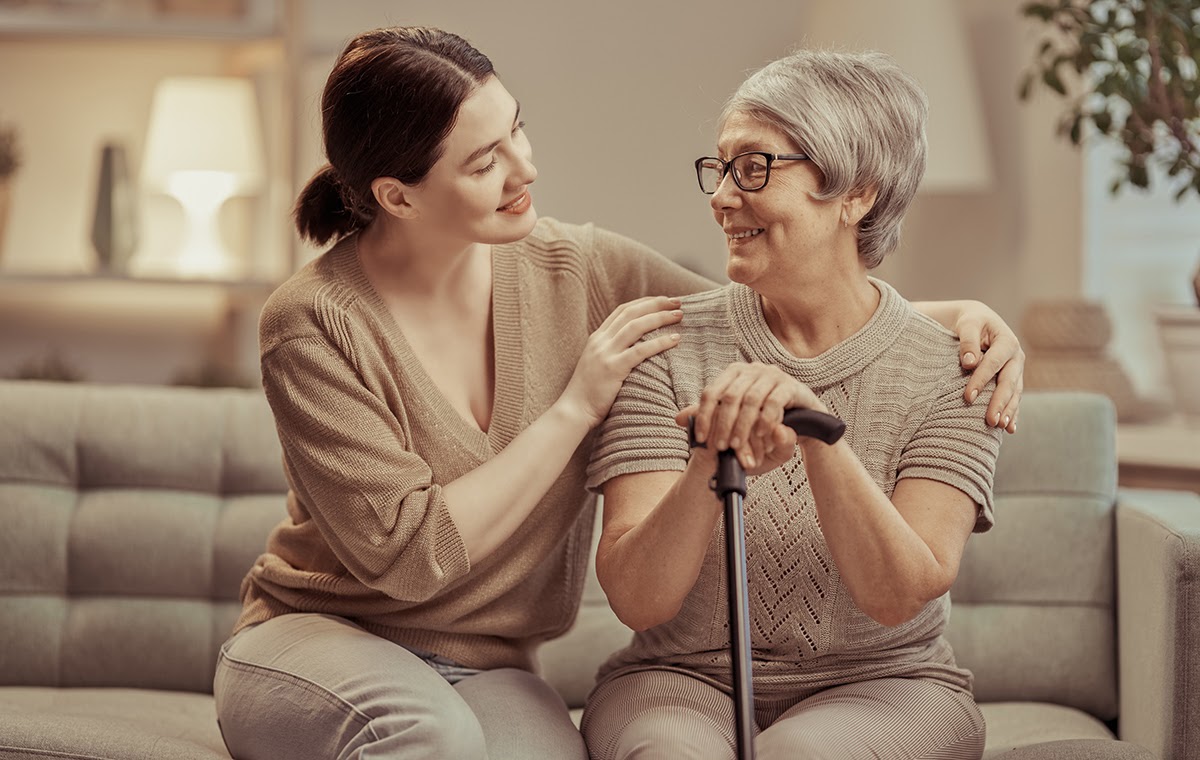Avoiding Falls for the Elderly
23 August 2021
Fall avoidance in the elderly is essential to ensuring the best quality of life for your loved one as they age in place.
Falls are not a rite of passage with aging; they can be avoided with a few small modifications in and around the home. Follow our 5 fall precautions for the elderly:

Tape down all area rugs. Area rugs are a major trip-hazard. If they’re not properly secured to the floor, they’re likely to buckle or roll up at the corners, which create hot spots for falls.
De-clutter main thoroughfares. The chaos of daily life can make it easy for clutter to pile up, but shoes, newspapers, clothes, books, etc. all contribute to the risk of falls for elderly adults.
Place nightlights in hallways and stairwells. As we age, we make more frequent trips to the restroom, especially during the night. To reduce tripping hazards (and account for limited vision), place nightlights in hallways leading to the bathroom. Also, make sure each step on the stairwell is well-lit to help seniors more easily navigate the stairs after dark.
Add non-slip mats in the kitchen and bathroom. The kitchen and bathroom are two places where it’s common to find water on the floor. The same way that custodians know to put up “Slippery when wet” signs on the floors of public spaces, it’s important to safeguard your elderly loved one from the dangers of falls in these areas. Non-slip mats near the sinks and bathtub/shower will greatly reduce the risk of falls.
Consider safety supports. Whether you need to add an additional railing on the stairs or install grab bars in the bathroom, make sure to do a full assessment of your loved one’s needs. An Occupational Therapist would be able to help you figure out your exact needs for the house, ensuring that your loved one will remain safe in the home.
While it’s possible to do everything in your power to safeguard your home and avoid elderly falls from occurring, it’s almost impossible to guarantee that they’ll never take a spill. When that happens it’s important to know that your loved one will have access to help, day or night. Medical alert devices can provide you and your loved one with the peace of mind that comes with 24/7 monitoring services. While these devices can’t stop falls from happening, they can keep you safe when they do.
Care & Placement Guides
Assessment - Home CareAssessment - Residential Care
Residential Care Agreement
Age Pension Current Rates
Residential Care Fee Categories
Current Fees and Charges
Basic Daily Care Fee
Means Tested Care Fee
What is a RAD, DAP, MPIR?
RAD
DAP
MPIR
Current & Historical MPIR's
Additional Service Fee (ASF)
Centrelink Form SA456 Explained
Centrelink Form SA485 Explained
Centrelink Form SA457 Explained
Smoking & Aged Care